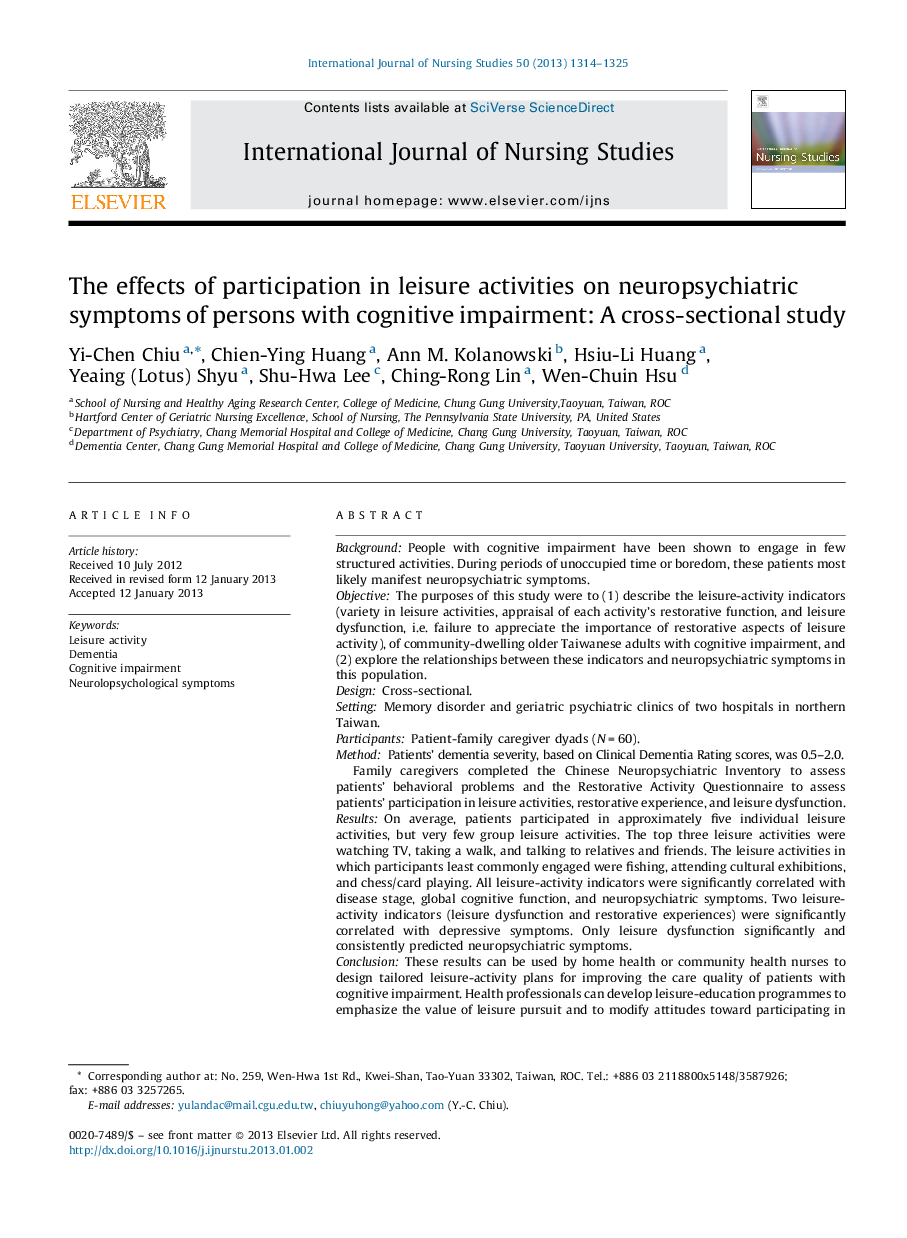| کد مقاله | کد نشریه | سال انتشار | مقاله انگلیسی | نسخه تمام متن |
|---|---|---|---|---|
| 1076612 | 1486543 | 2013 | 12 صفحه PDF | دانلود رایگان |

BackgroundPeople with cognitive impairment have been shown to engage in few structured activities. During periods of unoccupied time or boredom, these patients most likely manifest neuropsychiatric symptoms.ObjectiveThe purposes of this study were to (1) describe the leisure-activity indicators (variety in leisure activities, appraisal of each activity's restorative function, and leisure dysfunction, i.e. failure to appreciate the importance of restorative aspects of leisure activity), of community-dwelling older Taiwanese adults with cognitive impairment, and (2) explore the relationships between these indicators and neuropsychiatric symptoms in this population.DesignCross-sectional.SettingMemory disorder and geriatric psychiatric clinics of two hospitals in northern Taiwan.ParticipantsPatient-family caregiver dyads (N = 60).MethodPatients’ dementia severity, based on Clinical Dementia Rating scores, was 0.5–2.0.Family caregivers completed the Chinese Neuropsychiatric Inventory to assess patients’ behavioral problems and the Restorative Activity Questionnaire to assess patients’ participation in leisure activities, restorative experience, and leisure dysfunction.ResultsOn average, patients participated in approximately five individual leisure activities, but very few group leisure activities. The top three leisure activities were watching TV, taking a walk, and talking to relatives and friends. The leisure activities in which participants least commonly engaged were fishing, attending cultural exhibitions, and chess/card playing. All leisure-activity indicators were significantly correlated with disease stage, global cognitive function, and neuropsychiatric symptoms. Two leisure-activity indicators (leisure dysfunction and restorative experiences) were significantly correlated with depressive symptoms. Only leisure dysfunction significantly and consistently predicted neuropsychiatric symptoms.ConclusionThese results can be used by home health or community health nurses to design tailored leisure-activity plans for improving the care quality of patients with cognitive impairment. Health professionals can develop leisure-education programmes to emphasize the value of leisure pursuit and to modify attitudes toward participating in leisure activities. Finally, parks and recreational agencies may re-examine their services and facilities to meet the increasing needs of this population.
Journal: International Journal of Nursing Studies - Volume 50, Issue 10, October 2013, Pages 1314–1325